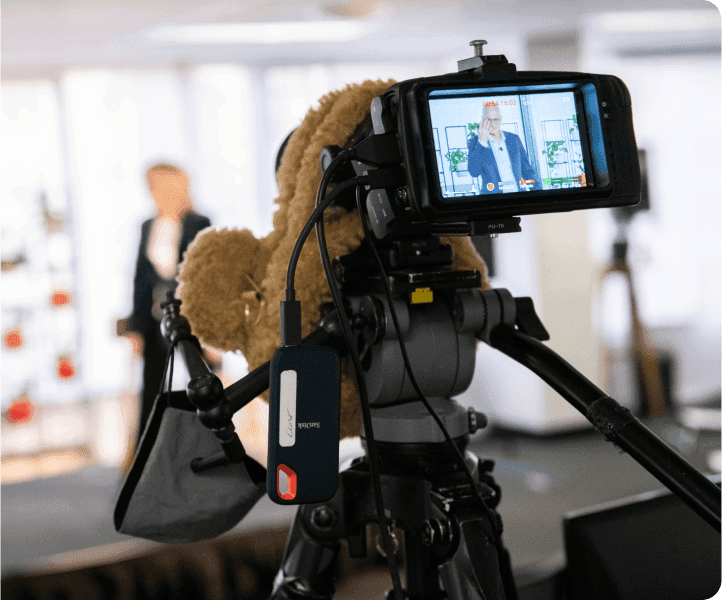Posted on December 17, 2024
Blog
Conferences
Event Management
Insights from futurist, Melissa Clark-Reynolds
Cliftons was recently fortunate enough to host an event at our Wellington venue with prominent futurist, Melissa Clark-Reynolds from the New Zealand Centre for the Future. In an insightful and inspiring discussion, Melissa encouraged us all to approach the future with a spirit of curiosity to help build resilience.
In this blog, we’ll recap some of the drivers of change that are impacting all businesses, the strategies leaders can adopt to embrace change, and ways to take advantage of emerging trends.
The drivers of change and the signals of change
As a futurist, Melissa thinks about two big things: the drivers of change and the signals of change. Both are important and require curiosity from business leaders on how these can impact or be applied to your organisation.
The drivers of change are the mega trends that are impacting everyone globally, things like climate change, geopolitical unrest and demographic change. In combination, these create situations like China’s population peaking which has meant that there’s less demand for wood from New Zealand forests, as well as scenarios that Melissa calls ‘the rise of the feminine’ manifesting in protests against the erosion of women’s rights in countries as diverse as Iran, Poland and the United States.
While signals of change are more like those interesting, sometimes tiny things that stop you in your tracks and wonder what they might mean. An example Melissa cited was the subscription business model that has been strongly driven by the software industry but has since gone on to be adopted by a range of different sectors, for both products and services, as well as the introduction of autonomous cars with Waymo in San Francisco. Other possible signals of change are things like population decline leading to more people waiting for organ transplants, triggering two different signals of change: people in poor countries selling organs and genetic editing of pig organs to see if they can be modified to not be rejected by the human body. As Melissa says, these signals are not necessarily good or bad, but they do require thinking about what they might mean.


Bringing an open mind to strategy and planning
“Business leaders need to be really curious about what impact these drivers and signals of change might have. Often when we see something new, we laugh at it or we come up with all the reasons why it won’t work. But my invitation to business leaders is to look at that strange thing – like the first time you saw a smartphone, an autonomous car, or a new business model – and think about is there anything you can take and apply to your business?” says Melissa.
This spirit of curiosity and open-mindedness should be brought to events like strategy and planning days.
Melissa says, “I’m a big fan of organisations actually having day-and-a-half strategy days. In this format, day one sees you bring in some interesting speakers to expand your view (maybe even a futurist), as well as customers, shareholders and other stakeholders. Then spend that first day doing blue sky thinking and looking at what’s changed in the world for the business – whether that’s geopolitically, economically, legally, or environmentally. And then thinking about the signals of change and whether they are creating any threats or opportunities. Following that first day of exploring, the second day is then when you really get down to brass tacks of what your strategy is going to be.”
Preparing for supply chain disruption
Another topic of discussion was the absolute certainty that supply chains will continue to face significant disruption – we just don’t know what the triggers will be.
“Disruption to supply chains is here to stay – it could be because of geopolitical unrest, it might be climate change, or the next pandemic. We’re going to see more disruptions, which will impact particular ports. For example, the war in Russia and Ukraine has meant New Zealand has not been able to export butter through the port in Odessa, but we’re also seeing things like climate change having an impact on the ability to get traffic through the Panama Canal and workforce strikes holding up imports in other markets,” says Melissa.
Leaders need to have strategies in place to respond to these situations, for example shifting to air freight in drier months, or considering ways to preserve fresh products to extend their shelf life if timely exports are no longer possible.


Supporting your team to embrace an uncertain future
Thinking about the future can be hard, and leaders need to be able to bring others on the journey of adapting to an uncertain world. To support this, Melissa cited the work of psychologist Jennifer Garvey Berger and her book, Unlocking Leadership Mindtraps: how to thrive in complexity, as providing a helpful framework.
“The book outlines how we can get stuck with simple stories when thinking about the future, where we look for simple, obvious reasons why things have happened. But in real life, things are much more complex. We also want to be right, so we listen to be right and to reinforce that belief, rather than exploring. We also want to be agreeable and to be in control, and these factors can limit the approaches we explore,” says Melissa.
To overcome these ‘mind traps’, Melissa encourages an approach that imagines alternative futures and a multiplicity of solutions, where there is not one right way to solve an issue.
“I find this approach useful, because the reality is that there isn’t even one present today, so of course there can be different futures. There’s so much variation around us now – my kids have grown up in a house with Wi-Fi and numerous devices, where other households can’t afford even one device. Accepting that there’s not one right way helps us to hash ideas out and work through conflict, be willing to explore ideas and ask others for input,” says Melissa.
Curiosity builds resilience
Ultimately, having the curiosity to imagine and prepare for multiple futures helps organisations to build resilience.
“If an organisation is really resilient, it can survive no matter what gets thrown at it. Whether it’s geopolitical issues, the next pandemic or climate change. We need to build for resilience, not for certainty and allow our understanding to evolve as things change. By accepting that the present is already incredibly messy and contradictory, and the future will also continue to be, we can develop the skills to adapt in the face of this uncertainty,” says Melissa.

Stay up-to-date with emerging trends with Cliftons
We loved hosting Melissa and being able to share her insights with our clients in Wellington.
And if you need help securing fascinating and engaging speakers like Melissa for your next business event, reach out to our event management team to see how we can help you.
About Cliftons
Event Solutions
If you’re ready to start bringing your event plans to life, talk to our
team to discuss your goals.
Start with a no-obligation chat about what you want to achieve, and our team can guide you through the services we offer.


